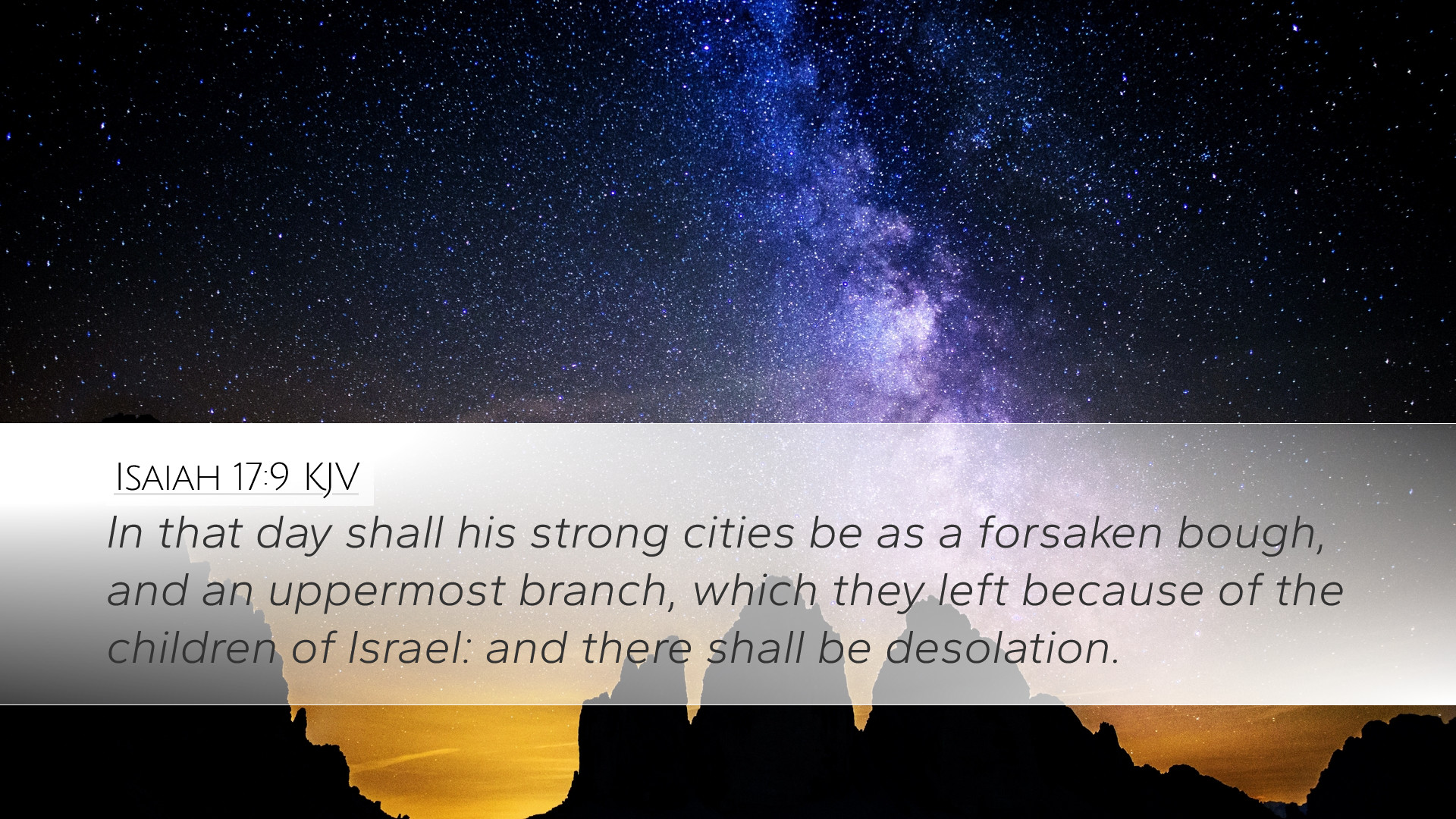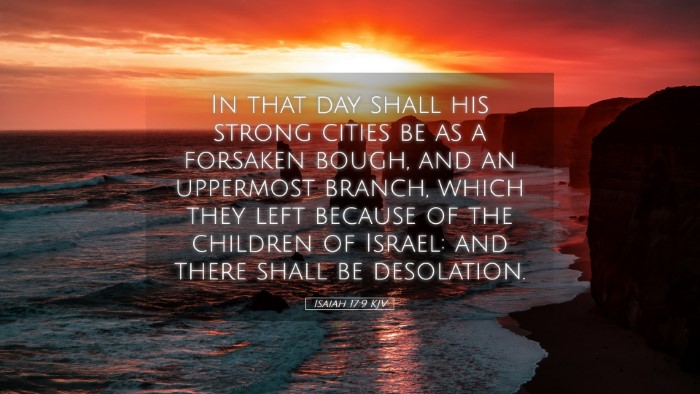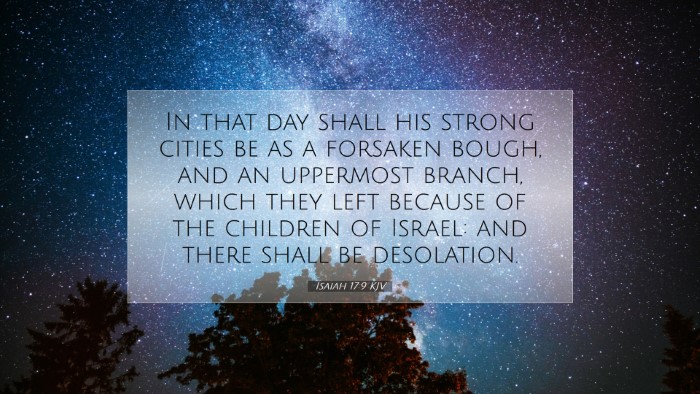Bible Commentary on Isaiah 17:9
Verse Context: Isaiah 17:9 states, "In that day he will look to his Maker, and his eyes will look on the Holy One of Israel." This verse lies within a prophetic context where Isaiah speaks of the impending judgments upon Israel and surrounding nations due to their reliance on false gods and alliances with foreign powers.
Theme and Significance
This passage is pivotal as it encapsulates the tension between divine judgment and the hope of divine restoration. It calls the reader to contemplate the seriousness of idolatry and the blessings of returning to God.
Insights from Matthew Henry
According to Matthew Henry, the "day" referenced in this verse signifies a time of reckoning due to Israel's transgressions and reliance on others rather than God. He elaborates on the consequences of turning away from the Creator, emphasizing that the nation's forsaking of God leads to desolation.
Henry points out that true corresponding attitudes are necessary: recognizing one's Maker and seeking God through sincere acknowledgment. The phrase "look to his Maker" carries profound implications about repentance and dependence on God, suggesting that in recognition of their failures, individuals are called to turn back to God, who is their true source of strength and salvation.
Insights from Albert Barnes
Albert Barnes interprets this verse as a dual warning and an invitation. He notes that the future judgment will compel people to acknowledge the futility of their past trust in their foreign alliances and idols. This recognition of dependence on God embodies a crucial turning point in the spiritual life of the nation.
Barnes emphasizes the "Holy One of Israel" as a title that reflects God's holiness and separateness from sin and evil. This recognition should invoke a sense of awe among His people. The act of looking to God acknowledges His sovereign authority and invites divine intervention during disaster.
Furthermore, he posits that this verse expresses a profound theological truth: that true salvation comes from recognizing one’s need for God amidst adversity. Such recognition brings hope not only on a national level but for individual hearts that seek restoration.
Insights from Adam Clarke
Adam Clarke provides a contextual analysis that notes the implications of the passage for the surrounding nations and the hint of impending destruction that serves as both warning and hope. Clarke suggests that the "day" is symbolic of a time of great transformation when divine intervention will lead to a reconsideration of values.
Clarke remarks on the necessary introspection that accompanies such devastating circumstances. He views the act of looking to "his Maker" as a critical process in the journey back to faith and purity, demonstrating that trials often lead individuals towards a greater understanding of their relationship with God.
Moreover, Clarke reflects on the significance of the phrase "the Holy One of Israel," reminding readers of God's unwavering holiness and the importance of pursuing righteousness in one's personal life and in the community.
The Historical and Prophetic Context
As you examine Isaiah's writing, it's essential to consider the historical backdrop of the passage. The Assyrian threat looms large over Israel and Judah, and Isaiah's prophecies often foresee the consequences of national sin and signify God's intention to restore and redeem even post-judgment.
This verse serves as a promise of hope amidst impending doom, showing that even when judgment is due, there remains the possibility of redemption when the people turn back to God.
Theological Reflections
This passage challenges readers to reflect on their own spiritual lives. It raises the question of what it means to "look to" God in a culture that increasingly leans on human understanding and alliances. Here are a few theological insights:
- Dependence on God: True dependence means turning away from worldly solutions and embracing God as the ultimate source of help.
- The Holiness of God: Understanding God’s holiness invites both reverence and a call to holiness in our lives.
- Promise of Restoration: Even in judgment, God's mercy prevails, offering hope that is foundational in the Christian narrative.
Practical Applications
For pastors, students, theologians, and scholars, Isaiah 17:9 encourages several practical applications:
- Encouragement in Leadership: As spiritual leaders, it is crucial to guide communities towards recognizing their need for reliance on God, especially in times of crisis.
- Teaching True Repentance: Emphasize the necessity of turning back to God and confronting false dependencies in preaching and teaching.
- Hope in Adversity: Proclaim the message of hope that God still invites us back to Him, regardless of our past failures.
Conclusion
Isaiah 17:9 serves as both a cautionary tale and a beacon of hope. It invites nations and individuals to turn back to their Maker, acknowledging the "Holy One of Israel" as their ultimate source of salvation. The combined insights from Matthew Henry, Albert Barnes, and Adam Clarke illuminate the richness of this passage, resonating profoundly within the lives of believers today.


